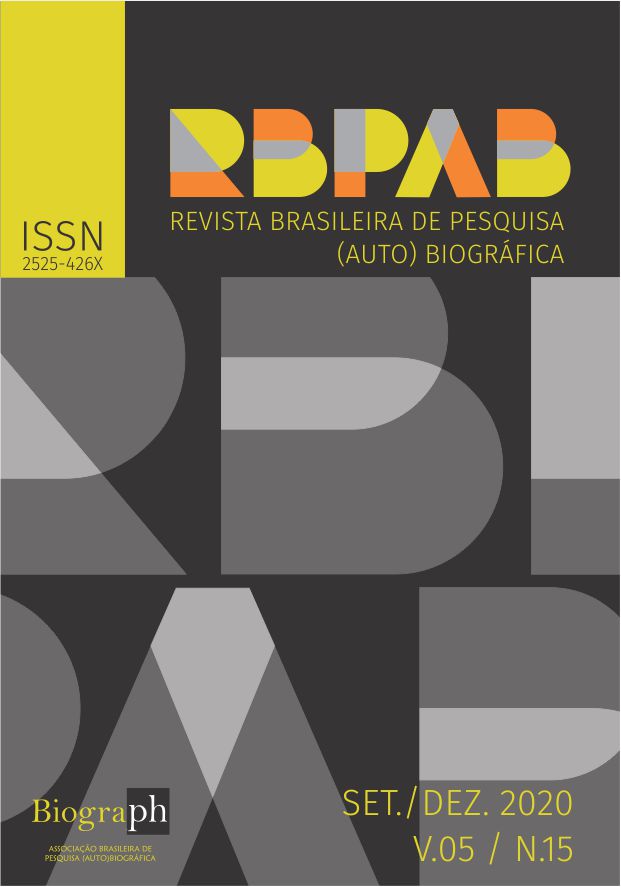Arqueologia pessoal: descobrir a sua diversidade interior através de artefactos da infância
DOI :
https://doi.org/10.31892/rbpab2525-426X.2020.v5.n15.p987-1001Résumé
Este artigo descreve uma autoexploração do principal autor através de artefactos da sua própria infância, na tentativa de "dar voz" a características estruturantes na criança que foi, e se mantiveram no adulto que hoje é. Este relato pessoal e íntimo surge da colaboração dos autores no desenvolvimento da “Arqueologia Pessoal”, um exercício para pais e profissionais da infância baseado no trabalho da Fundação Learning for Well-being, que vê os indivíduos como sistemas inteiros. No centro desta abordagem, destacam-se os princípios dos sistemas vivos e o reconhecimento da “diversidade interior” — formas fundamentais de capturar e integrar experiências que organizamos individualmente para criar uma representação do mundo externo que nos é idiossincrática. O artigo inclui diretrizes para que o leitor possa explorar sua própria Arqueologia Pessoal—procurando artefactos (e.g. fotografias, objetos, desenhos, textos) e histórias que indiquem narrativas pessoais, atitudes e padrões de funcionamento que perduram ao longo do tempo. Concluímos com uma reflexão sobre o valor de exercícios de autoexploração biográfica e a importância da questão da diversidade interior no bem-estar e participação de crianças e adultos.
Téléchargements
Références
ANÓNIMA (Mãe do Autor). Entrevista concedida a Luís Manuel Pinto em 21 de Nov. 2012.
ASSEMBLEIA GERAL DAS NAÇÕES UNIDAS. Convenção sobre os Direitos da Criança. [s.l: s.n.]. . Acesso em: 1 maio. 2020.
BELL, J. Understanding adultism. A Major Obstacle to Developing Positive Youth-Adult Relationships. [s.l.] YouthBuild USA, 1995.
BEN-ARIEH, A. The Well-being of the World’s Children: Lessons from the International Survey of Children’s Well-being. Children’s Subjective Well-being in Local and International Perspectives, p. 18–29, 2019.
CONDON, B. KinseyUnited StatesAmerican Zoetrope and Myriad Pictures, , 2004.
GEISEN, G. Autopoiesis - Perspective on sustainable, meaningful education. [s.l: s.n.].
INGAMELLS, K.; EPSTON, D. Placing strengths into storylines - Building bridges between strengths-based and narrative approaches. International Journal of Narrative Therapy and Community Work, maio 2012.
IRWIN, T. Holistic Science: How is it relevant to design? [s.l: s.n.].
KICKBUSCH, I.; GORDON, J.; O’TOOLE, L. Aprender para o Bem-Estar: Uma prioridade política para crianças e jovens na Europa. Um processo de mudança.. Lisbon: [s.n.].
KOSTER, B.; VAN DEN BERG, B. Increasing Professional Self-Understanding: Self-Study Research by Teachers with the Help of Biography, Core Reflection and Dialogue. Studying Teacher Education, 2014.
LEACH, J. ‘Give-up-itis’ revisited: Neuropathology of extremis. Medical Hypotheses, v. 120, 2018.
LLOYD, K.; EMERSON, L. (Re)examining the Relationship Between Children’s Subjective Wellbeing and Their Perceptions of Participation Rights. Child Indicators Research, v. 10, n. 3, p. 591–608, 2017.
LOPEZ, S. J.; LOUIS, M. C. The Principles of Strengths-Based Education. Journal of College and Character, v. 10, n. 4, abr. 2009.
MARTIN, D. J.; JEAN-SIGUR, R.; SCHMIDT, E. Process-oriented inquiry—A constructivist approach to early childhood science education: Teaching teachers to do science. Journal of Elementary Science Education, 2005.
MATURANA, H. R.; VARELA, F. J. The Tree of Knwoledge: The Biological Roots of Human Understanding. p. 269, 1987.
MIZZI, R. Unraveling researcher subjectivity through multivocality in autoethnography. Journal of Research Practice, v. 6, n. 1, 2010.
O’TOOLE, L. Understanding Individual Patterns of Learning: implications for the well-being of students. [s.l: s.n.].
O’TOOLE, L. Well-being as Wholeness The Perspective, Process, and Practice of Learning for Well-being. In: Improving the Quality of Childhood in Europe 2013. [s.l: s.n.]. v. 5p. 22–35.
O’TOOLE, L. Inner Differences: Exploring How We Seek to Know. Learning for Well-being Magazine, 2019.
O’TOOLE, L.; GORDON, J. Can we measure happy, healthy and meaningful lives? Learning for Well-being Magazine, 2015.
RANADE, S. Introduction to integral education: An inspirational guide. Pondicherry: Sri Aurobindo International Institute for Educational Research, 2006.
SELIGMAN, M. E. P. Authentic Happiness: Using the new positive psychology to realize your potential for deep fulfilment. New York: Free Press, 2002.
SORIN, R.; GALLOWAY, G. Constructions of childhood: Constructions of Self. Children Australia, v. 31, n. 2, p. 12–21, 2006.
STAFFORD, W. The Way It Is. Revised ed. edition ed. Minneapolis: Graywolf Press, 1999.
WHITE, M. The externalizing of the problem and the re-authoring of lives and relationships. In: White, M.: Selected Papers. Adelaide: Dulwich Centre Publications, 1988. p. 5–28.
ZHAO, H. et al. Studying the real child rather than the ideal child: Bringing the person into developmental studies. In: Developmental science and the holistic approach. [s.l: s.n.] 2000.













































